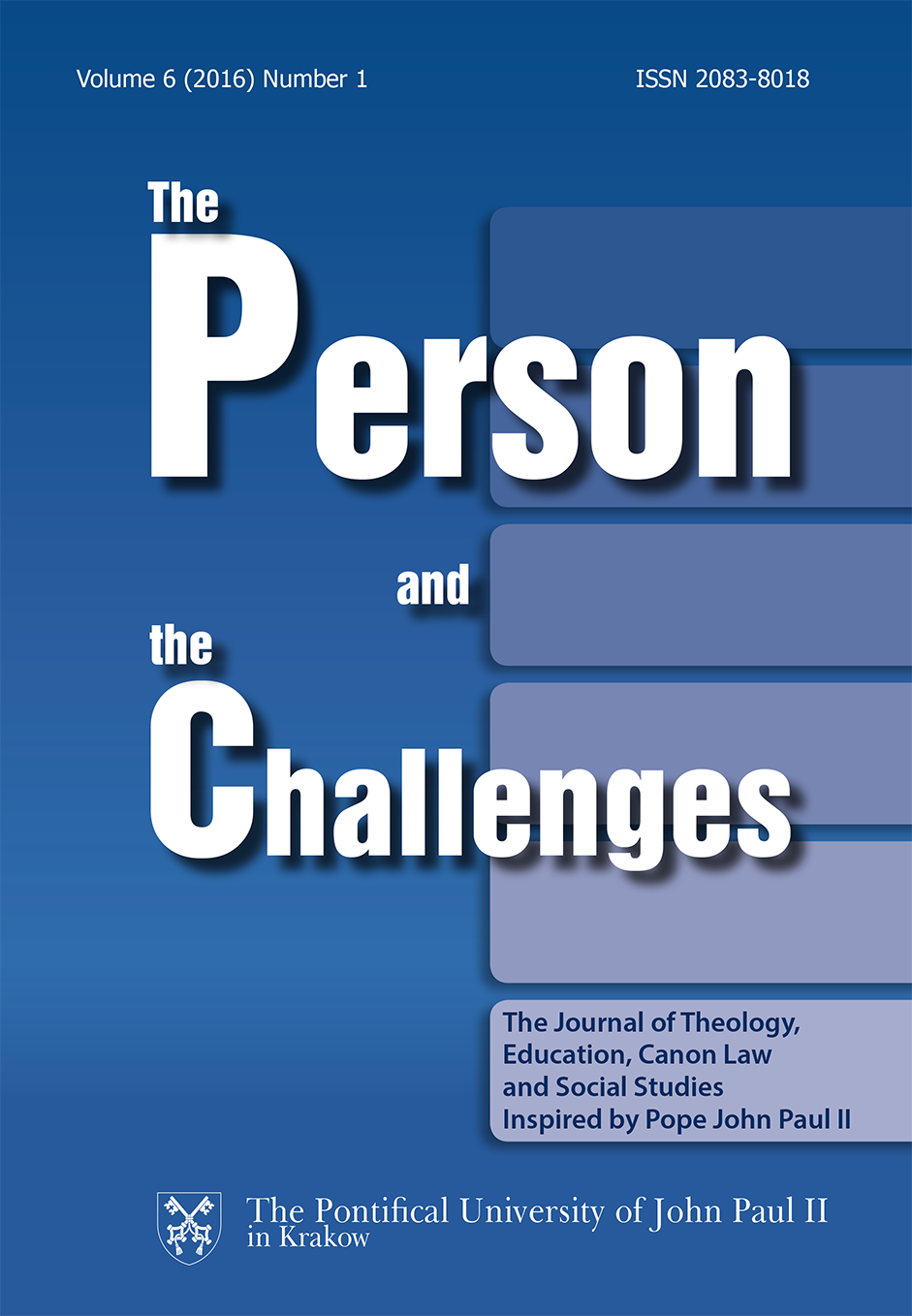Against Relativism. The Importance of Truth in the Ethics of St. John Paul II
DOI:
https://doi.org/10.15633/pch.1655Słowa kluczowe:
Axiological relativism, Ethics, Truth, Moral good, St. John Paul IIAbstrakt
The main aim of the paper is the analysis and critique of axiological relativism, typical of contemporary Western culture. Its supporters deny the objective status of moral norms and values. Axiological relativism leads to moral indifference based on blurring the difference between good and evil, and negating the belief that human action may be morally better or worse. I present the anti‑relativistic position of St. John Paul II, particularly in relation to the truth, understood as a cognitive and moral value. According to the Pope, a civilization based on the belief of the relative nature of good and evil leads to widespread hypocrisy and is destined to a slow decline.Bibliografia
Allsopp M. F., O’Keefe J. J. (eds), Veritatis Splendor. American Responses, Kansas City 1995.
Bauman Z., Two Essays on Postmodern Morality, Warszawa 1994.
Dinoia J. A., Cesario R. (eds), Veritatis Splendor and Renewal of Moral Theology, Chicago 1994.
Guarino T. G., Fides et Ratio: Theology and Contemporary Pluralism, “Theological Studies” (2001) 62, p. 675–700.
Grizes G., ‘Veritatis Splendor’ Revealed Truth vs. Dissent, “Homiletic and Pastoral Review” (1994) 94, p. 8–17.
Guggenheim A., Pour un nouvel humanism. Essai sur la philosophie de Jean‑Paul II, Paris 2011.
Kalita Z., The Philosophy of Paideia. History and the Present, in: D. Probucka, A. Olech, M. Woźniczka (eds), The Passion or Mission? The Teaching Philosophy, Czestochowa 2001, p.17-22.
Kulik- Jęsiek A., Ethics‑Philosophy‑Education in the Light of the Words of John Paul II, “Zeszyty Filozoficzne” (2009) 14–15, p. 75–89.
John Paul II, The Encyclical Veritatis Splendor, Poznań 1993.
John Paul II, The Encyclical Fides et Ratio, Poznań 1998.
Lazari‑Pawłowska I., Ethics, Wrocław 1992.
Majcherek J., The Cultural Relativism, Kraków 1995.
Morris J. F., Fides et Ratio and John Paul’s Call to catholic Philosophers: Orthodoxy and/or the Unity of Truth, in: J. P. Hittinger, The Vocation of the Catholic Philosopher: From Maritain to John Paul II, Washington 2010, p.184-200.
Probucka D., The Axiological Relativism and the Message of Pope John Paul II, in: D. P. Klimczak, A. Sojka (eds), Literature – Man – Value, Kraków 2007, Instytut Wydawniczy “Maximum”, p. 228–236.
Tolhurst J., A Companion to Veritatis Splendor, Leominster 1994.
Wilkins J. (ed.), Understanding Veritatis Splendor, London 1994.
Wilkins J. (ed.), Considering Veritatis Splendor, Cleveland 1994.
Wojtyła K., Love and Responsibility, Lublin 1964.
Wojtyła K., The Sermons 1962–1978, Lublin 1979.
Zdunowski Z., Teaching Philosophy and its Troubles with the Truth, “Analiza i Egzystencja” (2014 ) 25, p. 207–228.
Pobrania
Opublikowane
Numer
Dział
Licencja
Prawa autorskie (c) 2016 Dorota Probucka

Utwór dostępny jest na licencji Creative Commons Uznanie autorstwa 4.0 Międzynarodowe.
Autorzy publikujący w czasopiśmie udzielają jego wydawcy zgody o następującej treści:
- Autor zachowuje autorskie prawa majątkowe do utworu, a jednocześnie udziela wydawcy czasopisma zgody na jego pierwszą publikację w wersji drukowanej i wersji online na licencji Creative Commons Uznanie autorstwa 4.0 Międzynarodowe oraz zgody na wykonywanie opracowań, w tym przekładów.
- Autor ma możliwość udzielania zgody niewyłącznej na opublikowanie utworu w wersji, która ukazała się w czasopiśmie (np. zamieszczenia go w repozytorium instytucjonalnym lub opublikowania w książce), wraz z informacją o jego pierwszej publikacji w czasopiśmie.
- Autor może umieścić swój utwór online (np. w repozytorium instytucjonalnym lub na swojej stronie internetowej) jeszcze przed zgłoszeniem utworu do czasopisma.

